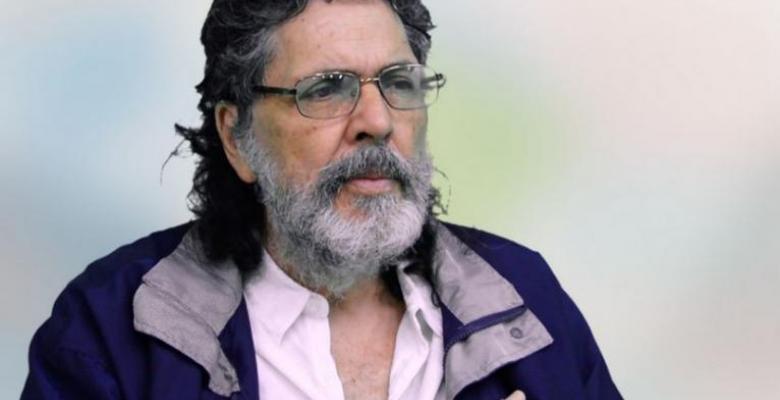Abel Prieto on the Sao Paolo Forum: The challenges of the cultural war (Part I)
especiales

After the fall of the Berlin Wall, in a totally adverse scenario for left-wing forces worldwide, the Sao Paolo Forum was created. Founded in 1990 under the auspices of the Workers Party in Brazil, this is today’s most important coalition for left-wing, progressive political groups and movements in Latin America and the Caribbean.
In its 30th anniversary, the Cuban intellectual and politician Abel Prieto Jiménez, President of Casa de las Américas, ponders about some of its challenges.
What are the challenges for organizations that are part of the Sao Paolo Forum with regards to the cultural war?
The cultural war today — in times of a major counteroffensive from the opposition, the far right, and fascism as such — is still paramount. It is contradictory that poor people, humble individuals from largely exploited sectors vote for a candidate that mass media sell high as promising, inspiring candidates…
It has much to do with today’s cultural war. This is not a simple phenomenon of political circumstances. This is not just a phenomenon of propaganda linked to elections. This is something that has much to do with the way individuals relate with themselves, their environment, and fate. Promising short-term improvements in the material plane can certainly fool lots of people.
One of the things the Sao Paolo Forum must address — and I believe a lot of people in political parties and other organizations are already discussing — is the life lessons left by this pandemic.
Covid-19 has unveiled a deep crisis within the neoliberal model; the great farce of the neoliberal model; how this is actually designed for elites; how millions of people are marginalized, increasingly cornered, and how they have been the main victims of this pandemic.
In other words, the world consciousness has been shaken on, for instance, the famous subject of health privatization. Not so long ago, one of the neoliberal basic principles was that it was unnecessary to spent so much money in preventive work. In fact, the cure to critical disease should be trusted to the pharmaceutical industry, private hospitals — one of the most diabolical instruments we all have witnessed these days.
I think the timing is perfect for left-wing movements to really mobilize people and form an anti-capitalist trench. Atilio Boró] said it. Anti-capitalist forces must make the most out of this situation to win supporters and convince people who are still confused.
On this anniversary of the Sao Paolo Forum, the cultural war must be one of the targets. And we should add the anti-fascist component. The rearticulation of ultra-racist, intolerant, cruel neofascism — with no intention to disguise its will to prevail at all costs — has been evident in recent years. We can see it in the Trump’s administration, in Bolsonaro’s, in our America and even Europe. There are openly neo-Nazis parties in Europe, with seats in the European Parliament and well positioned in national parliaments as well.
We are fighting hard to preserve our memory. This is very important if we talk about cultural war: the idea of our fight is not only linked to our present and future, but also to preserve our tradition, our past, and history.
The idea of saving the face of Franco and Franco’s followers; the idea of taking away USSR’s decisive merits in the defeat of Hitler’s army. We owe the victory over fascism to the people of former Soviet Union and the US cultural industry — along with some Western nations — have moved mountains to fool the world and they are trying hard to make people believe that the D-Day famous landing was the pivotal moment in the defeat of Hitler’s forces. Soviets were the ones who broke Hitler’s army. Its people and army, sacrificing 27 million lives.
This great swindle that mankind has been subjected to in recent years has much to do with the war about memory. That is to say, we are fighting hard to preserve the memory of our heroes, martyrs, the legacy of left-wing people that have been distorted by the great far-right apparatus. And we have not been able to crate the antidote to stop such cultural machinery.
We must create a well-established culture: a revolutionary culture, an emancipating culture. That thesis of (José) Martí where he said: only an educated individual can be free. Fidel said: there is no possible freedom without culture. And we have seen these setbacks in left-wing movements in recent years. For instance, people who achieved great benefits in terms of materials within progressive processes and all of a sudden, totally fooled by propaganda and such information-cultural machinery, they choose to vote for their class enemies; they voted for the representatives of the exploitation forces.
The cultural subject has become increasingly crucial in recent Forums. It is paramount that forces represented in the Forum may share views with progressive intellectuals, artists, and creators. The role of art in the formation of human values, in defense of symbols, is transcendental. It really spreads values, ideas, and principles.
Translated by Sergio A. Paneque Díaz / CubaSí Translation Staff
[1] Atilio Borón (Buenos Aires, July 1, 1943) is a left-wing Argentine political analyst and sociologist













Add new comment